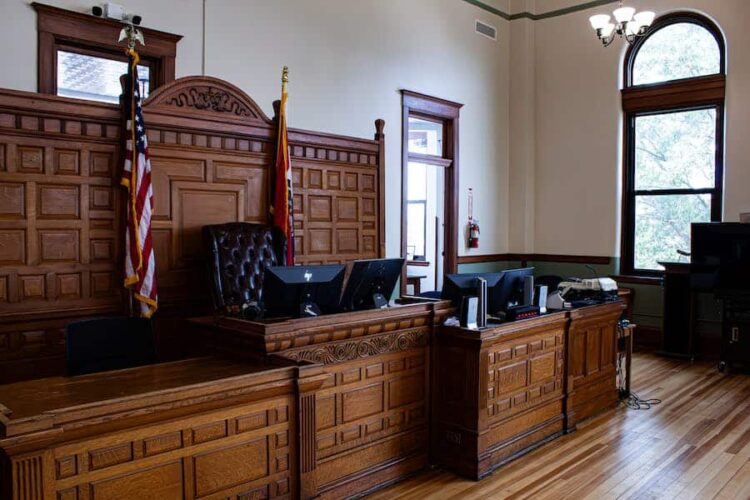As the legal system weaves its intricate web, various individuals step onto the stage to offer their insights and observations. Among these individuals is the lay witness – an essential participant in legal proceedings who brings their firsthand experiences to light. In this article, we will delve into the concept of a lay witness, unraveling their role, responsibilities, and significance within the realm of the law. Join us on this exploration as we shed light on the question: What is a lay witness?
What Is A Lay Witness?
A lay witness is an individual who provides testimony in court based on their personal observations and experiences. They offer crucial insights that aid judges and juries in understanding the facts of a case.
The Basics Of A Lay Witness
Lay witnesses, ordinary individuals with firsthand knowledge of a case, provide valuable insights by bridging the gap between legal language and the lived reality of events, making the legal process more relatable and comprehensible. By sharing their experiences, lay witnesses provide an original, untainted viewpoint that frequently captures the human element and stirs up feelings in courtrooms. They give a chronological account of what happened but don’t offer expert analysis, interpretations, or opinions.
Lay witnesses undergo preparation to ensure accurate, clear, and aligned testimony during court proceedings. They are then directly examined by the party they testify to describe their experiences and answer the sequence of events. Cross-examination is a crucial phase where the opposing party’s lawyer questions a lay witness to test their account’s accuracy and credibility, ensuring the information presented is reliable and trustworthy.
The Contribution Of Lay Witnesses
Lay witnesses wield the brushstrokes that paint a vivid picture of the events under scrutiny. Their role isn’t confined to mere narration; they influence the trajectory of cases and contribute to the pursuit of justice. Here’s how their contribution unfolds:
Factual Insight:
Lay witnesses provide an essential layer of factual insight, acting as weavers of the fabric of truth within a legal case. While legal documents and expert testimonies offer valuable perspectives, they might fall short of capturing the intricate nuances of events. Lay witnesses bridge these gaps, offering accounts that are deeply rooted in their personal experiences. Their narratives have the power to transform abstract legal concepts into tangible realities, allowing judges, jurors, and legal professionals to perceive the events with clarity and authenticity.
Supporting Or Contradicting Evidence:
The role of lay witnesses extends beyond simple testimony; they hold the scales of justice in their hands. They can serve as pillars of support or catalysts for transformation by either corroborating or contradicting the evidence presented by other parties. Their accounts act as a litmus test for the veracity of arguments put forth by lawyers. By offering perspectives that align with or challenge established evidence, lay witnesses infuse the legal landscape with a dynamic interplay that guides the search for truth.
Impacting Juror Perception:
Jurors, often the final arbiters of justice, find a powerful connection in the stories of lay witnesses. These relatable experiences resonate deeply, transcending the realm of cold legalities. The emotional impact of lay witnesses’ narratives can sway opinions, challenge preconceptions, and even shift the trajectory of a case. Their authenticity humanizes the legal process, allowing jurors to view the events from a perspective that transcends the courtroom walls.
Gauging Credibility:
The courtroom stage isn’t just a platform for testimonies; it’s also an arena for credibility assessment. Lay witness credibility is meticulously evaluated, hinging on their demeanor, consistency, and ability to recall details with accuracy. This evaluation is a critical component in determining the weight their testimony carries. As their narratives unfold, the court assesses not only the content of their accounts but also the sincerity and authenticity with which they are delivered.
Changing The Narrative:
Lay witnesses have a significant impact on legal cases because their testimony can change narratives and interpretations. Their well-articulated accounts can refocus attention by emphasizing previously overlooked aspects. Their influence extends beyond testimonies, shaping the pursuit of justice. Lay witnesses weave a multidimensional legal tapestry that enriches understanding and interpretation of complex events through factual insight, balance, juror perception, credibility measurement, and the potential to change the narrative.
Navigating The Legal Landscape With Lay Witnesses
Lay witnesses aren’t just bystanders; they are active participants in the legal process. Understanding their role, qualifications, and the process of presenting their testimony is essential to comprehending their significance:
- Role Identification: Lawyers identify potential lay witnesses who possess relevant information about the case.
- Qualifications: Lay witnesses don’t need specialized expertise; their qualifications lie in their direct experience or observation of the events.
- Testimony Preparation: Lawyers often meet with lay witnesses to prepare them for court appearances, ensuring their testimony is clear and accurate.
- Direct Examination: During the trial, lay witnesses are examined by the party who called them to testify. They narrate their experiences and answer questions.
- Cross-Examination: The opposing party’s lawyer cross-examines lay witnesses to test the accuracy of their accounts and gauge their credibility.
- Impact on Verdict: Lay witnesses’ testimonies can influence the verdict by providing a human perspective on the events and circumstances of the case.
Decoding The Lay Witness: A Closer Look
In the realm of legal proceedings, lay witnesses are the everyday heroes whose narratives breathe life into courtroom dramas. They are not legal experts or professionals, but rather individuals with direct knowledge of the events under scrutiny. Here’s a concise breakdown of the key aspects surrounding lay witnesses:
Everyday Observers: Lay witnesses are not legal pundits; they are ordinary individuals who provide personal insights into the events in question.
Personal Knowledge: Their testimonies are grounded in personal experiences, observations, or interactions, making them relatable and authentic.
Raw Factual Accounts: Unlike expert witnesses who offer interpretations, lay witnesses provide raw, unfiltered accounts of what they’ve seen, heard, or felt.
Human Perspective: Their narratives often inject the human element into the courtroom, evoking emotions and empathy from judges and jurors.
Limited To Facts: While their perspectives are invaluable, lay witnesses don’t offer opinions or specialized analysis; their role is to present facts.
Qualifications: Their qualifications lie in their direct connection to the events, whether as observers, participants, or recipients of relevant information.
Preparation: Lawyers often meet with lay witnesses to ensure their testimonies are clear, accurate, and aligned with the sequence of events.
Direct Examination: In court, the party who called the lay witness questions them to bring their experiences to light.
Cross-Examination: The opposing party’s lawyer cross-examines the lay witness to assess the accuracy and credibility of their testimony.
Impact On Verdict: Lay witnesses provide a human perspective that can influence the verdict by offering an authentic narrative.
In the intricate dance of legal proceedings, lay witnesses stand as the bridge between complex legal jargon and the tangible reality of events. Their role is pivotal, as they unveil the facts that shape cases, impacting the pursuit of justice itself.
Conclusion
As we traverse the intricate landscape of legal proceedings, the role of a lay witness emerges as a vital thread in the fabric of justice. Their firsthand accounts breathe life into cold facts, humanizing the legal narrative and offering a window into events that words alone cannot capture. A lay witness, armed with authenticity and experience, wields the power to shape the trajectory of a case and contribute to the quest for truth and fairness.
FAQ’s
Q: Can Anyone Be A Lay Witness?
A: Yes, anyone with firsthand knowledge of the events in question can be a lay witness, regardless of their profession or background.
Q: How Is A Lay Witness’s Credibility Assessed?
A: A lay witness’s credibility is evaluated based on factors like consistency, honesty, and their ability to recall events accurately.
Q: Can A Lay Witness Offer Opinions?
A: Lay witnesses are typically not allowed to provide opinions. They are expected to stick to sharing factual information based on their observations.
Q: Are Lay Witnesses Cross-Examined?
A: Yes, lay witnesses can be cross-examined by opposing parties to test the accuracy and reliability of their testimony.
Q: Are Lay Witnesses Compensated For Their Time?
A: Some jurisdictions compensate lay witnesses, covering expenses related to their appearance in court.









